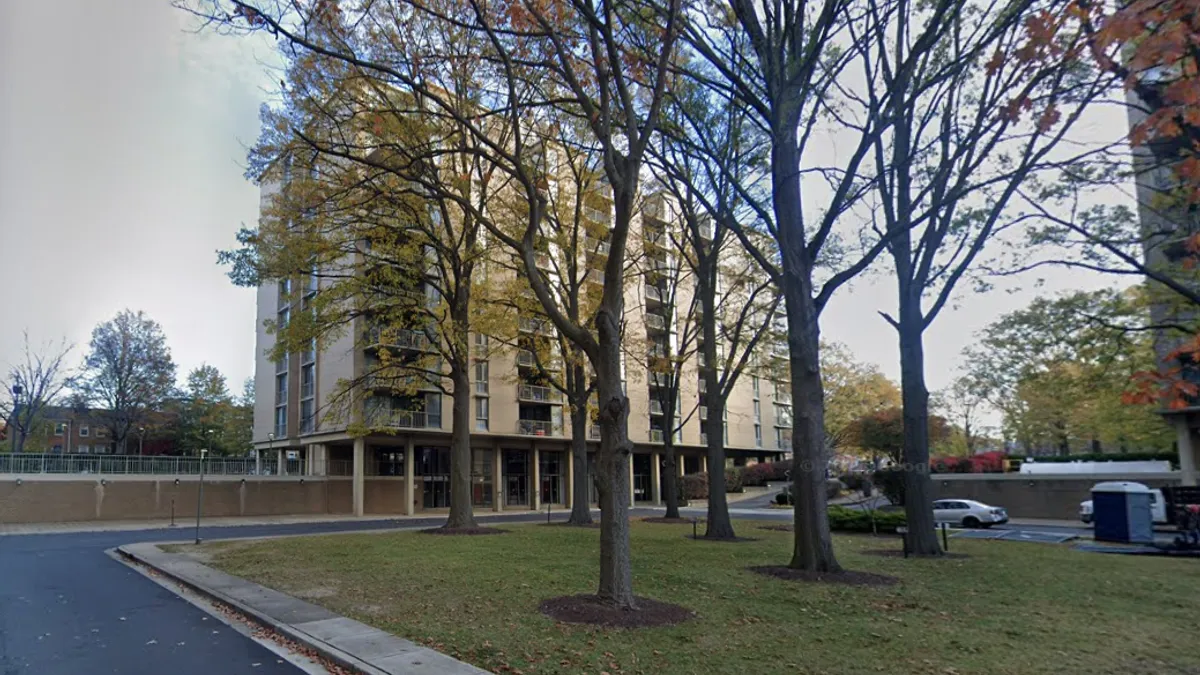This story is the first in a series looking at the impact of recent tech-focused layoffs on the multifamily sector.
The tech layoffs that began in 2022 show no signs of slowing this year. In 2023, Amazon announced that it was going to cut 18,000 jobs, Salesforce eliminated 10% of its staff and PayPal jettisoned 2,000 employees, just to name a few of the firms downsizing.
In 2023 so far, 345 tech companies laid off almost 103,767 workers, according to the website layoffs.fyi. Companies that serve the commercial real estate sector like Lev, Jetty and Lyric also had job cuts (see box below).
“You’re seeing the pullback,” said Christopher Yip, a partner at Park City, Utah-based venture fund RET Ventures. “You have the large tech companies you see in the news. But this flows all the way down into the startup ecosystem as well. A lot of technology startups are facing the same issues.”
Yip estimates that many startups are cutting between 10% to 20% of their workforce. For the apartment sector, these job cuts matter. After dragging its feet for years, the industry has ramped up its technology adoption since the start of the COVID-19 pandemic. As these layoffs continue, apartment firms must do proper due diligence on their tech providers.
The impact on apartments
Yip sees tech companies going in three directions. The healthiest ones will continue to attract customers and capital. Another group will decide they can’t make it alone and will be bought by bigger companies. “I think apartment owners need to be mindful that if their desire was to find new vendors that are different from the existing vendors, their existing vendors might end up owning their new vendors,” Yip said.
The third group of these companies could go out of business. “If they can’t raise their next round of funding, they can’t continue,” Yip said.
Many multifamily firms are increasingly relying on tech companies, including many startups, whose services handle everything from leasing to maintenance and operations to smart home integration and marketing.
Real estate-related tech layoffs
| Company | Job cuts | Date |
| Lyric | 100 | March 2022 |
| Jetty | 35 | April 2022 |
| Zillow | 300 | October 2022 |
| Lev | 30 | December 2022 |
| Vacasa | 1,300 | January 2023 |
SOURCE: layoffs.fyi
“Apartment owners need to be very careful about their choice of technology partner because some of these startups will not exist in a year,” Yip said. “In the last five years, there has been a lot of capital, and many startups have gotten funded. There have been a lot of new solutions, which have been great for the industry. This is the other side of the cycle where who your vendors are is really important.”
If technology companies are struggling financially or their products aren’t reliable, David Bitton, founder and chief marketing officer of Miami-based property management software provider DoorLoop, said they could have trouble providing the necessary tools and services to the industry.
“Similarly, if there are growing concerns about data privacy and security, it might lead to more regulations, making it harder for multifamily companies to implement new technology,” he said.
Trouble signs
In this uncertain environment, it's more important than ever for apartment owners and operators to know who they’re working with. To start with, Bitton suggests investigating technology partners’ financial statements, industry reputation, business models, references, management teams and legal histories. It can even be valuable to do a background check.
“By doing this research, owners and operators can better protect themselves from the risk of the firm going out of business and make a more informed decision about whether to partner with them,” Bitton said.
Yip also thinks any company that signs a large enterprise contract should do vendor assessment and due diligence. That includes looking at the strength of the team, the product roadmap and the potential to deliver new features.
“If you're signing on with the promise of new features in the next six, 12 or 18 months, get a commitment from that team as to whether that roadmap is funded or whether they need to raise more capital,” Yip said. “Historically there has been a dynamic of promising features and then winning the sale and raising money against that. Now, there is more scrutiny on what a company can credibly deliver with its current business plan.”
Scale helps in vetting
For larger owners, like the public REITs, there may be opportunities to investigate further by looking at things like key investors and the company’s liquidity position.
“If they are large enough customers, they might not get the full books, but they can certainly ask about the financial health,” Yip said.
Above all, remember that if a company is offering a price that is too good to be true, it probably is. “You have to look at each one individually and say, ‘Are the unit economics actually sustainable?’” said Austin Lo, cofounder and CEO of New York City-based virtual tour platform Peek. “Or is this something that I'm getting suspiciously cheap?”
Even if a technology vendor is in decent financial condition, it's always important to evaluate the staying power of its offerings.
“Technology evolves fast and becomes obsolete at times faster than we could imagine,” said Rick Goldberg, vice president of sales at Anaheim, California-based smart technology solutions company Arize.
Ultimately, Yip doesn’t see apartment operators retreating from tech adoption. Many of these products attract residents and help operators manage costs.
“Technology adoption is not going backward,” Yip said.
Click here to sign up to receive multifamily and apartment news like this article in your inbox every weekday.


















